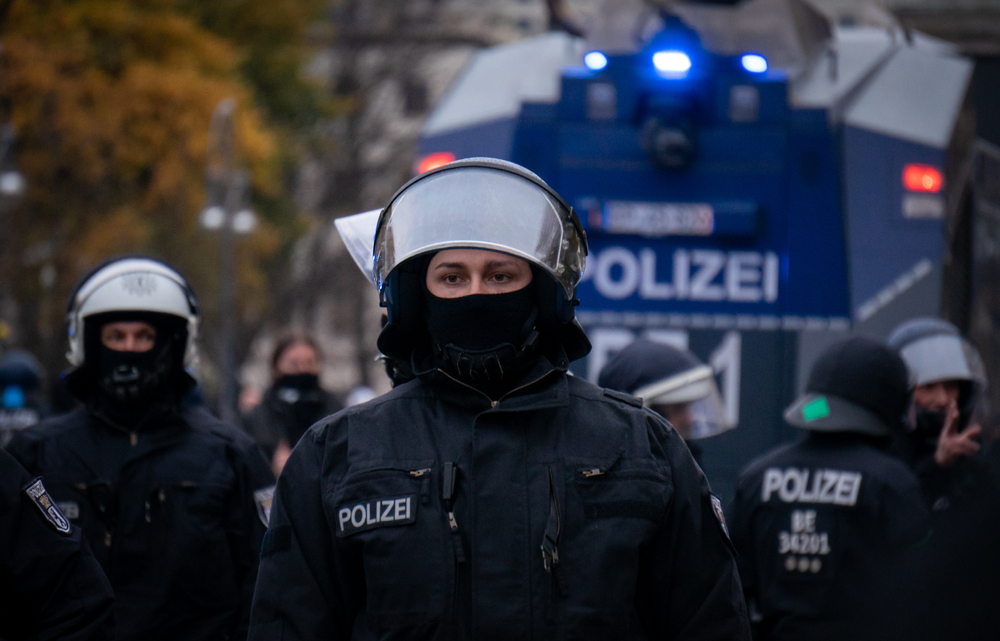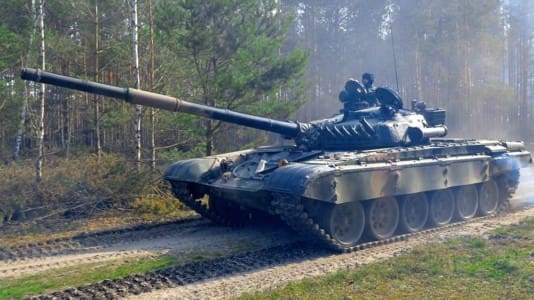The Polish consul in Berlin, Marcin Król, warned tourists visiting the German capital that some of the areas of the city could be dangerous. He also announced that in 2021, 10 times more crimes were committed in Berlin than in Warsaw.
“While visiting Berlin, please note that some areas of the city may be relatively dangerous for tourists,” wrote the Polish diplomat on social media. He added that in 2021, over 482,000 crimes were committed in Berlin compared to 49,000 in Warsaw, with only two times more inhabitants living in the German capital.
When adjusted for population, Berlin has five times more crime than Warsaw.
In the thread on Twitter, the Polish consul mentioned the dangerous areas and metro lines in Berlin such as Charlottenburg, Bahnhof Zoo, Alexanderplatz, Tiergarten, and metro line U8.
Marcin Król is a diplomat and political scientist. He was appointed as the Polish consul in the German capital in January 2022; previously, he was the consul in Munich, according to Polsat News.
New Year’s Eve violence fuels migration debate
During New Year’s Eve less than a month ago, a series of attacks perpetrated by migrant youth against emergency services occurred in Berlin. Dozens of policemen and firefighters were injured. Authorities were attacked with firework mortars and other pyrotechnical materials. According to police, 100 out of 145 of those arrested during the New Year’s Eve riots are migrants, while just 45 hold German citizenship. Of those with German citizenship, reports indicated that a substantial share had a migration background.
Berlin Mayor Franziska Giffey condemned the attacks, saying that “the level of violence and destruction deeply shocked me. It hurts our city, causes fear, and has nothing to do with greeting the New Year.”
[pp id=7568]
The street violence in Berlin on New Year’s Eve has triggered a debate on law and order and mass immigration ahead of the upcoming regional elections in several states, including Berlin. Bavaria’s premier, Markus Söder, lashed out at the center-left government in Berlin, claiming it could “neither organize elections nor guarantee the safety of its citizens.”
As Remix News has previously reported, crime rates are dramatically different between Western and Eastern Europe. For example, when comparing robbery rates between countries like Hungary, Poland, and Czechia to Western Europe, the chances of being robbed in the West of Europe are far greater.
Remix News has also reported on the dramatic rise in crime in Western European nations. Much of the contrast between Hungary and nations like Britain and Sweden has to do with migration. Swedish police chiefs have, for instance, placed the blame for much of the spike in crime rates on migrant clan gangs, of which there are now over 40 operating in Sweden. In Paris, France, nearly half of all criminals are foreign-born in certain departments. Data from the country’s transport system also shows that 92 percent of all petty thefts were committed by foreigners.
[pp id=15417]
In Germany, migrants are responsible for 38 percent of all crimes despite being a small share of the population and are highly over-represented in serious crimes like murder and robbery.
Poverty does not necessarily explain the massive differences in crime between East and West either. Countries like Hungary have a slightly higher poverty rate than France, and yet Hungary is overall a far safer nation to live in. One of the primary contrasts regarding these states is that, for example, Hungary and Poland refused to accept migrant quotas and feature far lower migrant populations overall.
Conservative governments in both nations have not been shy about placing the blame for the West’s higher crime rates and wave of terrorist attacks on the affected nations’ acceptance of multiculturalism and mass migration.
Hungarian Prime Minister Viktor Orbán said in 2020 that the West has chosen the path of migration, and it has led to dramatically different outcomes:
“I also see that law enforcement and police are on the streets, and yet there is a wave of violence. Statues are being toppled, the conditions are deplorable, and there are gang wars on the beautiful streets of small towns in civilized Western European countries. I look at the countries of those who are advising us how to conduct our lives properly and on good governance, proper operation of democracy, and I don’t know whether to laugh or cry.”
It is not just robbery rates or gang violence, either. Terrorism is virtually non-existent in Central and Eastern European nations, and the issue of Islamic terrorism is nearly a non-factor, predominantly because so few Muslims live in these nations. After the Vienna terror attacks last year, Hungarian security policy expert Georg Spöttle said, “Fortunately, the threat in Hungary is not as high as in Austria, Germany, or France because we hardly have any immigrants from Islamic countries here.”






